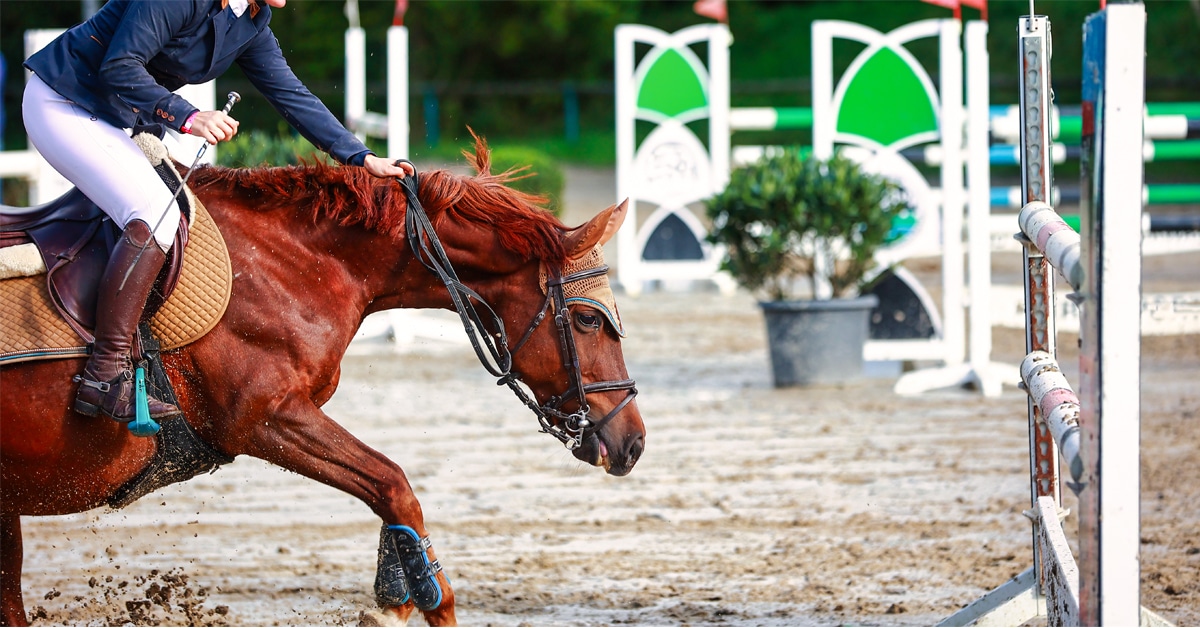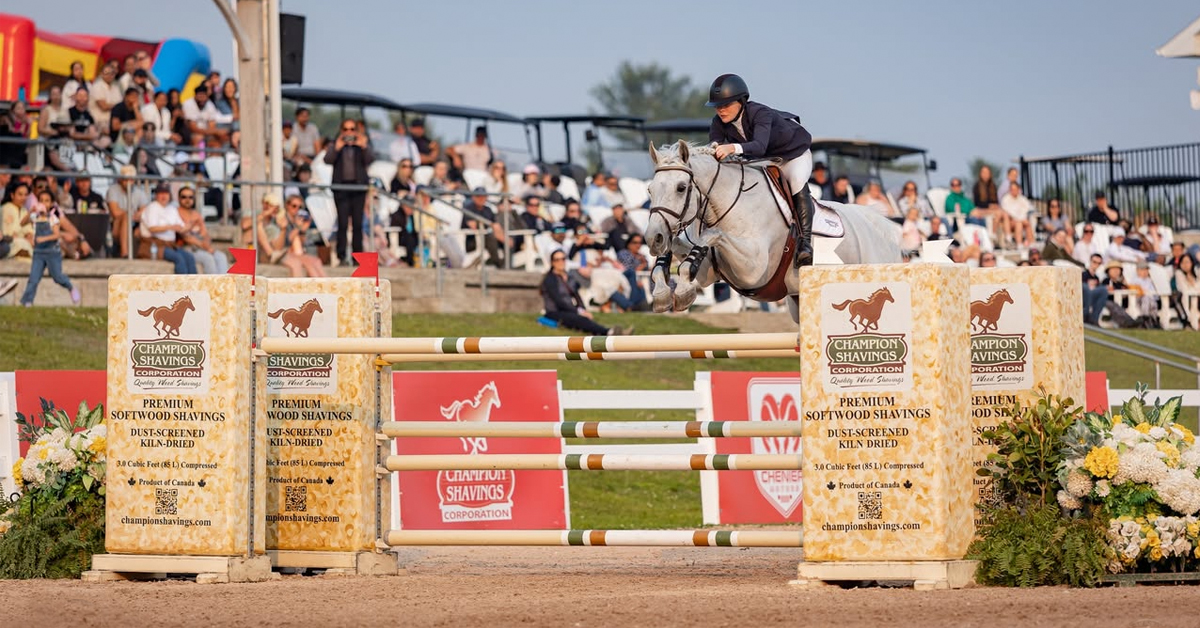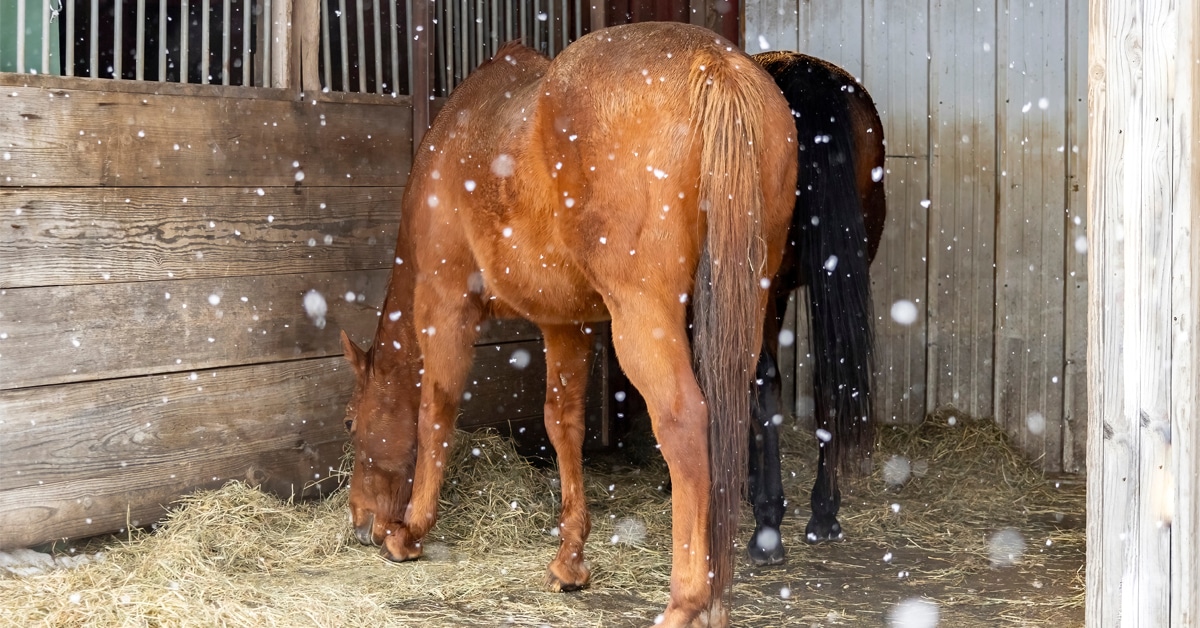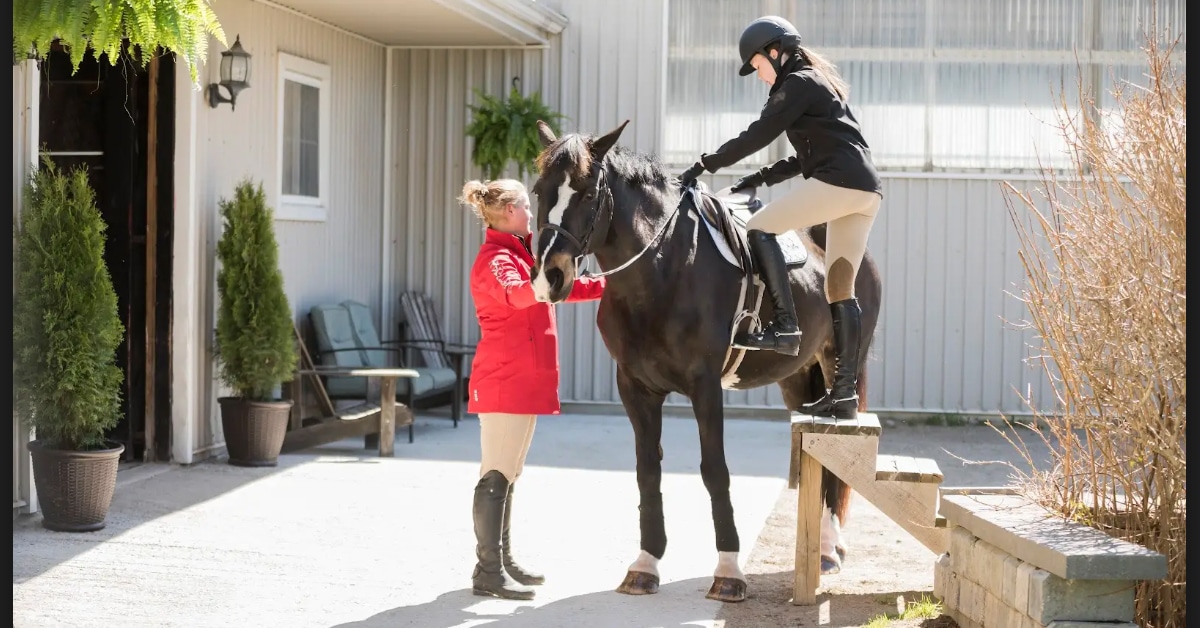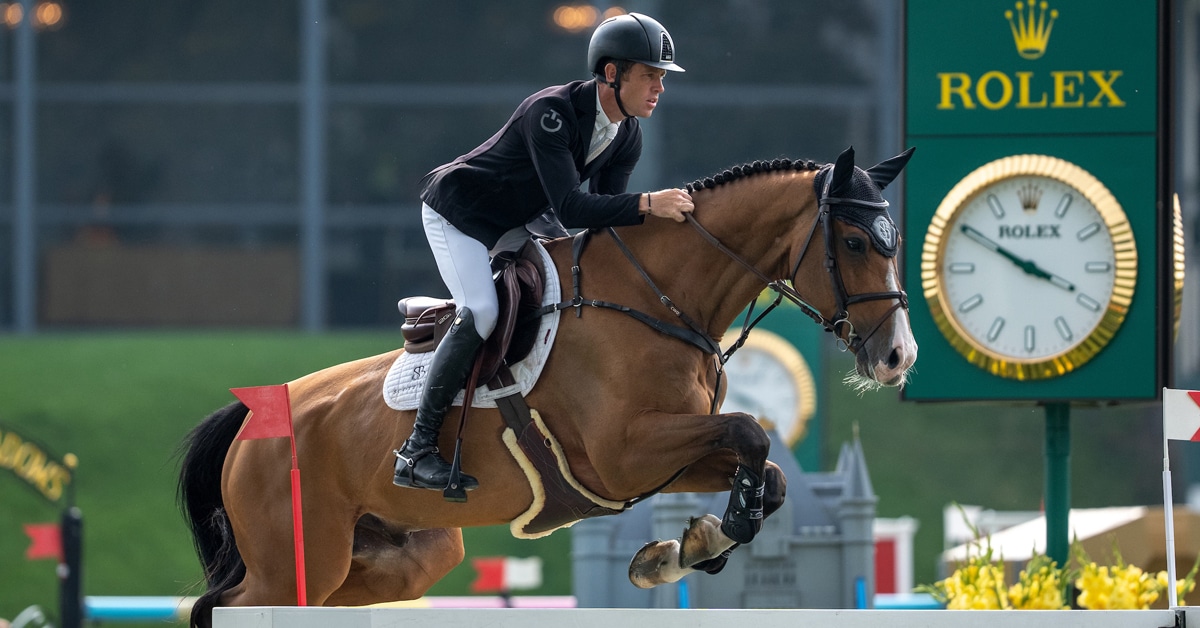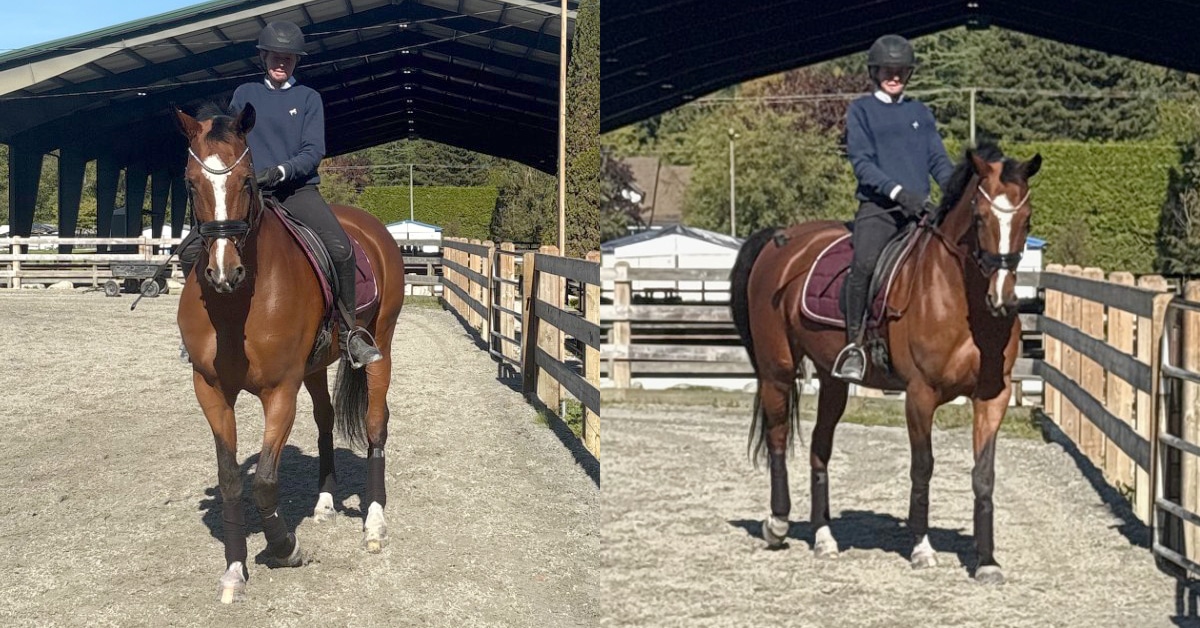EC-sanctioned shows can only run with the appropriate officials, but there are concerns regarding a shortage of EC and FEI officials in Canada. Whether caused by attrition or lack of newcomers signing on, that decline will prove detrimental to equestrian sport in this country.
In 2016, the former CEO of Equestrian Canada, Jean-Christophe Gandubert, wrote in an article published in Horse Sport that “the future of Canadian horse shows depends on attracting new stewards, judges, and [Technical Delegates].”
Gandubert’s article outlined several main issues affecting officials:
- a need for stewards, judges, and technical delegates to be more independent and more accountable from horse show organizers
- a need for greater transparency about the process of hiring officials and the wages paid
- a need for establishing “a strong and efficient officials’ development pathway for all equestrian disciplines”
It’s been eight years since Gandubert’s article came out. Has anything changed?
EC and FEI officials by the numbers
Gandubert wrote that “the shortage of qualified officials in Canada is a crisis in the making.” In 2024, there are currently 44 stewards and 41 judges with FEI certifications, according to EC’s “Find an Official” directory. It’s worth noting that inclusion in the directory is voluntary, so it’s possible that not all licensed officials are listed but unlikely because that would limit job offers.
While EC would not comment on how many officials are actually needed, Horse Sport consulted industry experts who conservatively estimated that EC is short about 20% of the required TDs, Stewards, and Course Designers across the disciplines. There was not a noted shortage of judges. The biggest area of concern is currently the number of FEI Stewards.
This shortage means that horse shows are challenged to get the officials they need. Last year, for example, it was an insurmountable challenge when two horse shows on either side of the country wanted to host a CDI3* on the same day. There were not enough officials in Canada to fill all the roles, so the shows had to hire three US officials which is very costly and a real barrier to organizers who want to host competitions at these levels. This is a serious problem for our riders who need these events to meet Minimum Eligibility Requirements (MER) required by EC and the FEI to participate in major events like Pan Ams and Olympics. When these events aren’t available locally, riders are forced, at their own expense, to travel elsewhere if they hope to be on the Canadian team.
The shortage is attributed to a variety of factors which has only been exacerbated by the increase in the number of horse shows. Officials have been warning EC for years that their current population is close to retiring (ex: longtime official Jan Stephens recently retired as Eventing Steward for Canada).
This has always been a bit of a challenge, since historically officials have typically been senior industry members who have the passion for pursuing the work in their retirement years. The short show season in Canada means that there aren’t enough opportunities for officials to make the role their full-time job without committing to an extensive travelling schedule around North America which may not be practical for those that want to stay closer to home or who are raising a family.
Add to that the fact that the job has become increasingly complex. In years past, a steward was responsible for checking tack and passports, but are now required to fulfill many more tasks such as monitoring all lunging, supervision of all schooling and warmup rings, monitoring stables and grounds for biosafety and welfare, checking that temperatures are taken, coordinate with various other officials such as organizers, ground juries, event directors, etc., plus address, manage and report any incidents.
Starting in 2021, EC began to take action on this problem and has included a goal of recruiting 50 “U50” (under 50 years old) officials by the end of 2025 in their Strategic Plan. To support that effort, they have updated the Stewards curriculum and exams, automated the online portal, and are working on establishing a mentoring strategy for prospective officials. The effort is paying off, as they have recently announced 23 new officials.
“We are confident that the work being done on development pathways, alignment, and integration with FEI and PTSO programs, as well as the annual program priorities and strategies relating to officials and officiating in Canada will assist us meet this goal,” said Rachel Huebert, Director, Sport Operations.
It Just Takes Time and Money
There is a significant time and cost to becoming an official, which may also suppress interest. While each discipline has different pathways to becoming an official, a Hunter/Jumper candidate, for example, would start as a Learner and must then get recommendations from at least three different Senior Stewards to progress to Recorded Status which is done by job shadowing. A few applicants may come with deep experience and may only need to attend three shows to get the recommendations, but most will need considerably more time.
Progressing from Recorded to Senior is even more challenging. To become a Senior Dressage Steward, for example, part of the requirement includes officiating at a minimum of ten Silver and four Gold dressage competitions, plus officiating or shadowing at a Silver or Gold dressage championship in Canada or with an FEI steward at an FEI competition.
Learners don’t get paid for the time they spend shadowing and must bear the cost of attending horse shows at their own expense. As many horse shows run on weekdays, this may involve taking time off work. This up-front commitment is rewarded later on when hired for paid work. The amounts earned vary between the disciplines with Hunter/Jumper Stewards earning about $350/day, Dressage Stewards about $200/day, and Eventing Technical Delegates about $350/day. Travelling expenses are not always included and can depend on the distance travelled and the show organizer.
There is also a problem of losing stewards to lack of work at the lower levels. First-year Stewards, for example, are not allowed to do much alone and many shows run lower and upper levels concurrently to help riders compete near home, but will then only need one Senior Steward and can’t afford a lower level one as well.
Challenging Process
Another issue is a lack of timely and clear communication from Equestrian Canada, specifically when it comes to the officials program.
“You’re not going to get anybody on the phone very often,” said Allan Ehrlick who has been an EC official for over 20 years, including roles as a steward and judge. He thinks part of the problem is that EC doesn’t have an office anymore and staff work from home. “The contact that used to be relatively simple is difficult.”
Laura Taylor, who recently became certified as a steward, has experienced this difficulty first-hand. She’s been riding since she was 16, and through EC, she’s had really positive experiences getting her coach certification, evaluating rider levels, and volunteering with her local PTSO. “In the instance of stewarding, my experience has been starkly different to other situations,” Taylor says.
She started by taking an introductory course in April 2023. Taylor is a university professor in Mississauga, and the academic part of EC really appealed to her. At the course, she met a number of stewards who were there to reinstate their own licenses. They told her there was shortage of stewards and encouraged her to get certified.
Connecting with active stewards enabled Taylor to observe some shows at Angelstone and Caledon. When she went to Alberta for the summer to visit family, she was able to go to more shows.
All of this was done, she says, without any help from EC whatsoever. “This was all just people who out of the kindness of their heart would let me come and sit with them.”
Later she performed a number of tasks, under supervision of a senior steward, that are required for certification. Once she had everything needed to get certified (including her Gold Sport License, which is $202, and the completion of the course, which cost about $100), she sent it all to EC in July 2023. She didn’t hear back for four weeks, so at that point followed up to see if they’d received her documents.
“Their response was, ‘do you want to submit more stuff?’” Taylor says, explaining that she just wanted to confirm they had received the materials she had already submitted. “Then radio silence.”
She contacted everyone she could think of, including the stewards rep; the Officials Coordinator (which was Maria-Christina Lepore in July 2023, but has since changed to Tony La Giorgia); the Director of Sport Operation; and even the CEO. She estimates she sent about 25 emails without a response.
Finally, she got a reply in December 2023 saying that she’d become a steward. But by then, disappointingly, she’d missed the window of sign-ups for the 2024 show season.
“I’m very confident that the reason that there are not enough stewards is because of EC incompetence,” Taylor says. “I’d love to be working as a steward this year. I chose this process because I thought it was really interesting, and I have met a lot of really interesting people along the way,” Taylor says. But when it comes to the officials, “EC really doesn’t seem to care at all.”
“EC has learned through the critical look at the program that administrative processes were burdensome and the Officials Portal was improved and forms and documents have been streamlined to avoid some of the challenges faced by Ms. Taylor,” noted Huebert. “We recognize and have identified that administrative and application processes are not meeting the standard in which we want to serve our community and have been taking steps to solve these issues and update our systems.”
Despite this, Taylor is still excited about the opportunity to being a steward, and eventually getting more involved with EC.
“I do think that what they’re trying to do in changing Canadian equestrian sport is important,” Taylor says. “And I just want to be a part of it, if they’ll let me.”
Huebert concludes, “We are dedicated to growing the number of officials, as well as the skills and knowledge of officials through professional development and mentorship opportunities. We welcome feedback and input from the community and hope that everyone can work together to support the future of officiating and our sport overall.”
~ with files from Caelan Beard
The Latest
